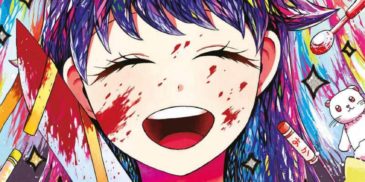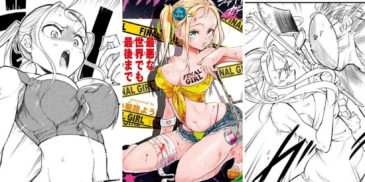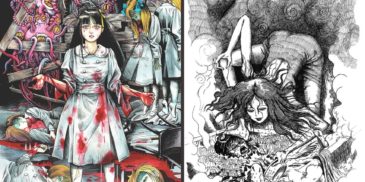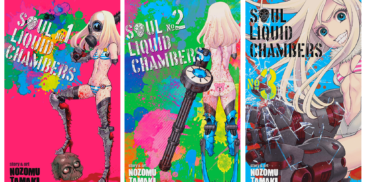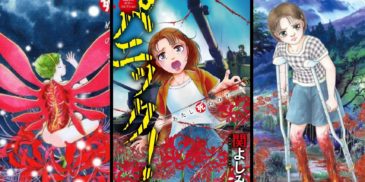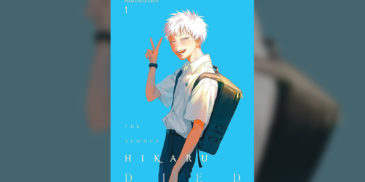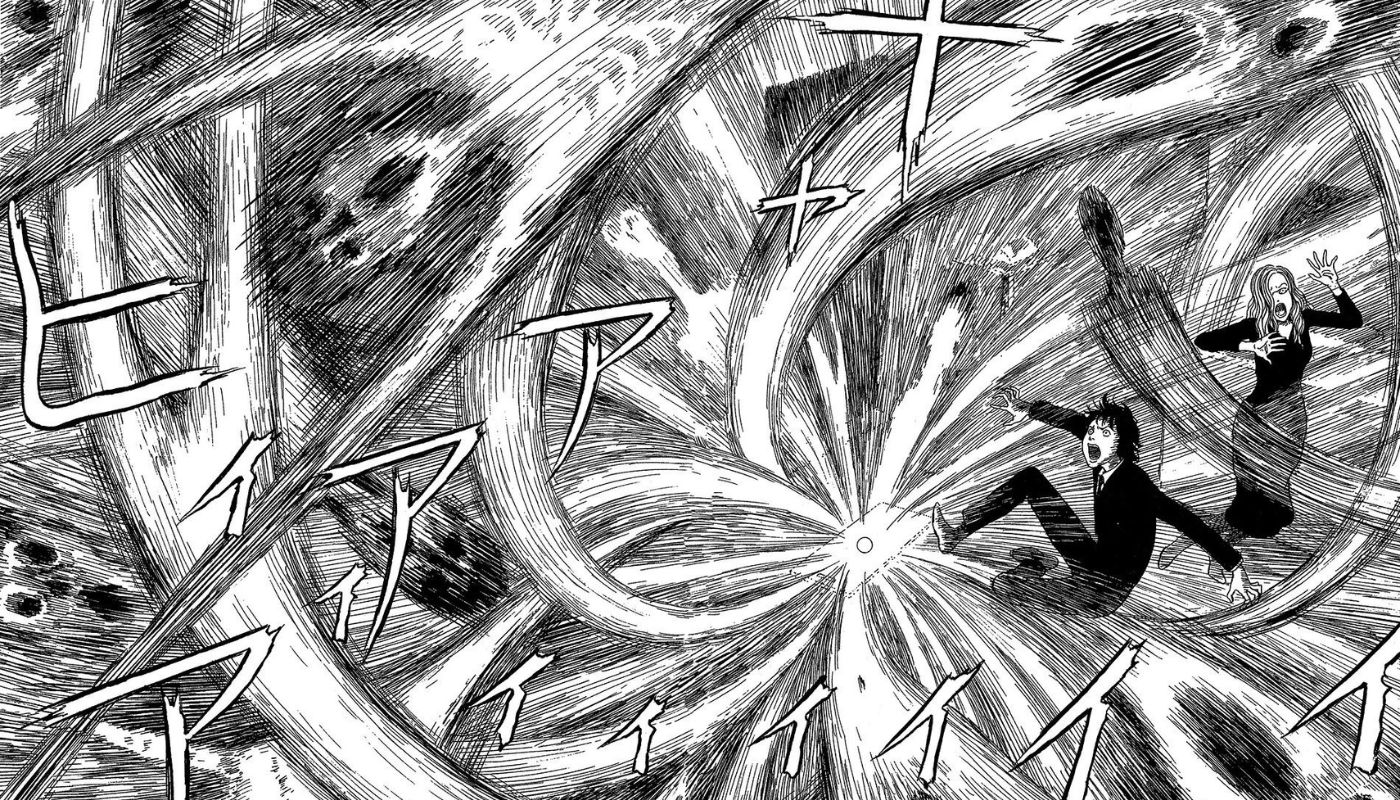
“Four people intent on killing themselves meet through the suicide website Black Paradox: Maruso, a nurse who despairs about the future; Taburo, a man who is tortured by his doppelganger; Pii-tan, an engineer with his own robot clone; and Baracchi, a woman who agonizes about the birthmark on her face. They wander together in search of the perfect death, fatefully opening a door that leads them to a rather bizarre destiny…”
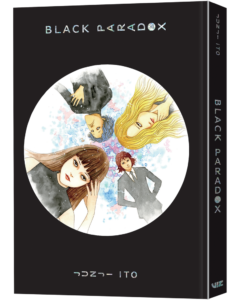
It just would not be October without some good horror manga, even better when coming from one of the masters of the genre, Junji Ito. However, Black Paradox is not a new release from the acclaimed master of cosmic horror, but rather the inevitable translation of a 2009 title—It is at this point we can assume everything Ito has created will eventually get a proper English release. In fact, Black Paradox is a book that many fans may already be familiar with given how long it has remained unpublished in the West compared to other works which have seen multiple editions. Is there a reason for the delay? Well, depending on who you ask the answer will vary.
Junji Ito has made a deserved name for himself in horror, given his ability to tap into primordial fears on par with masters of both metaphysical and cosmic terror. His ability to instill horror in the reader via unimaginable horrors tied to protagonists who only exist to bear witness has put his name alongside H.P. Lovecraft in discussing the mangaka’s effectiveness in tapping into the fear of the unknown. However, Ito’s horror is not always steeped in uncertainty and the creator will approach his work with comedic wit, science-fiction, or character-driven narratives. Black Paradox happens to be a mixture of all three and, arguably, one of the weaker attempts in this approach.
Storywise, Black Paradox goes on a lot of tangents that don’t really serve the story well. Notably, the inclusion of a cyborg as a means to explore another realm comes across as a ham-fisted plot point. Additionally, the light humor elements coming at the expense of the gloomy robot evoke more pity than intended laughs. While Pii-tan and his cyborg double represent how poorly constructed the story is, this sentiment extends to all four of the characters in various ways that they manage to stay flat and uninspiring.
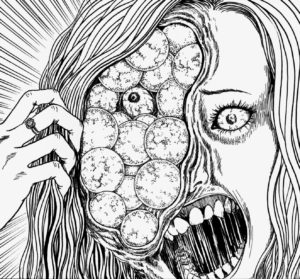
In indulging in a more sci-fi, character-driven narrative Black Paradox is devoid of the sense of dread that Ito so wonderfully conjures. Furthermore, elements of body horror are tame in comparison to other pseudo-science-driven narratives like Gyo. It is difficult to point to anything in Black Paradox that highlights the best of Ito’s capabilities as a creator, and this extends to the art as well. Certainly, the book still contains his detailed style and there are still perfectly ghastly panels of body/mind-bending horror, but the amount of stunning visuals is minor in comparison to other projects.
Black Paradox begs the question of whether everything Ito makes deserves a platform over other horror manga that have been, largely, neglected (Hideshi Hino, Suehiro Maruo, and Nishioka Kyoudai, to name but a few). While Black Paradox is easily his most uninspired and disjointed story to date, (with the least visual flair) the answer is still a resounding… Yes.
As the modern-day master of horror manga to the West, Ito is held to high standards that he can’t always reach. Black Paradox may be disappointing when looking at the mangaka’s oeuvre, but is still a solid horror story by any other standards with enough visual flair to still appease the existing fandom. Furthermore, readers’ preference as to whether they like the abstract or character-driven work of Ito will affect the overall impression of the manga and it is not implausible for certain readers to find deeper value within. Add the fact that Viz, once again, presents the work of Ito in such glorious editions that look great on the shelf, and Black Paradox is still a release worthy of picking up (or as a Halloween gift).
Black Paradox is Available Through Viz Media
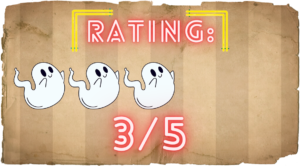
More Manga Reviews
How can one not be drawn in by the vague title and a colorful cover art showing a smiling girl surrounded by blood alongside cute items? Honestly, sometimes it is… I believe we are all aware of the stereotypes of certain genres in horror, specifically slasher movies. The near formulaic structure of their story is a carbon copy of the… Horror manga has seen a steady surge in popularity with the likes of Junji Ito, making it to international recognition and closing the gap of mainstream versus the underground. To… Every now and then, when I’m browsing for new media to enter my brain hole, I come across a title that has managed to capture my interest by just viewing… Collecting eight stories from mangaka Yoshimi Seki, the Yoshimi Seki Horror Collection is a title divided in two parts thematically. Focusing on horrors associated with war, both realistic and born of… The Summer Hikaru Died is an ongoing (currently at 4-volumes) slice of life/horror Seinen manga, written and illustrated by Mokumokuren. First conceived while Mokumokuren was studying for his exams, the…Children Manga Review – The Horror of Broken Youth
Final Girl Manga Review – A Slasher Parody
Obscure Horror Manga – The Disturbed Visions of Noroi Michiru
Soul Liquid Chambers Manga Review – A Kaleidoscope of Colour and Violence
Yoshimi Seki Horror Collection Manga Review – Humanity at its Worst
The Summer Hiraku Died: Volume 1 (2023) Manga Review – Uncanny Valley
